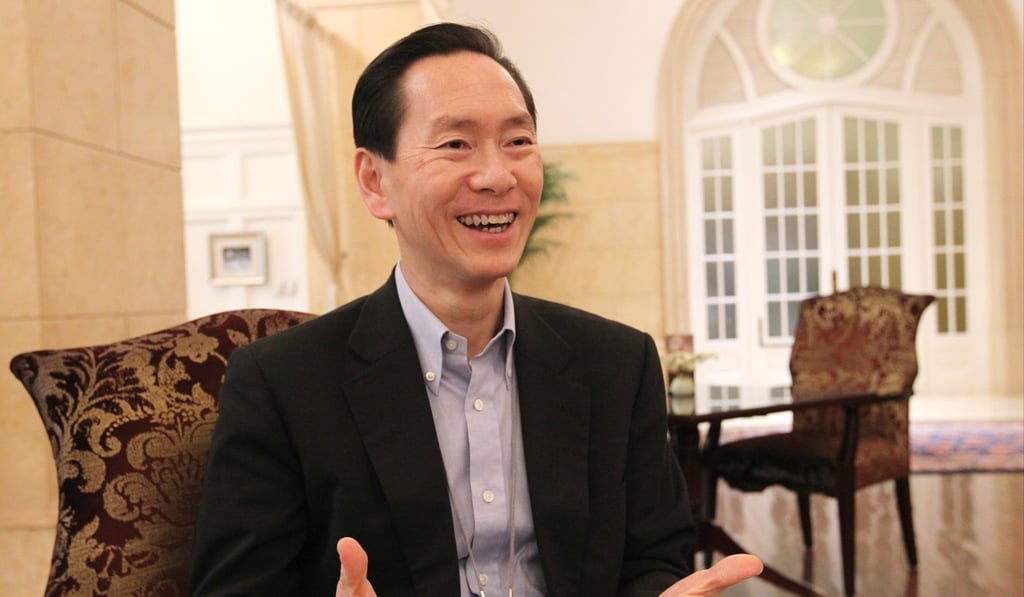Bulldozing part of Fanling golf course ‘a pity’ and future housing development should have more open space, Executive Council convenor says
- Bernard Chan tells the Post in Beijing that building on golf course will not make much of a dent in Hong Kong’s housing problem
- A preliminary study estimated 4,600 flats could be built on targeted portion of land

The convenor of the Hong Kong chief executive’s cabinet said on Tuesday it was a pity to bulldoze part of an historic golf course to build homes and suggested keeping more open space at the future housing site.
The most controversial option on the list was the redevelopment of one-fifth of the 172-hectare Fanling golf course, which mainly serves 2,600 club members, many of them from the city’s political and business elite.
“I am not a member of the golf club but my company holds a corporate membership,” Chan, convenor of the Executive Council, which advises Chief Executive Carrie Lam Cheng Yuet-ngor, said in an interview on the sidelines of National People’s Congress meetings in Beijing.
“I was there to endorse the decision – all along I have supported taking back the course, but how to use it is another thing,” he said.

Chan had proposed turning it into a public park rather than building homes. Stressing the site was “very beautiful”, he said it was still a pity to him that part of it would be bulldozed in 2024.
But he endorsed the task force’s recommendations because he understood they had to face public pressure and it would be difficult for the government to explain if it had cherry-picked recommendations of the report.